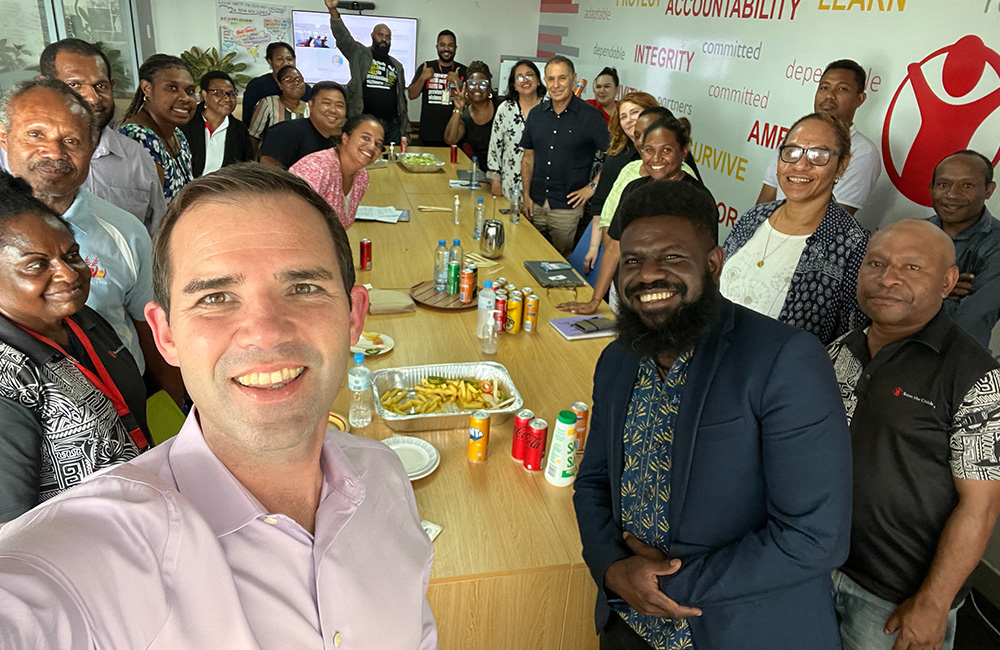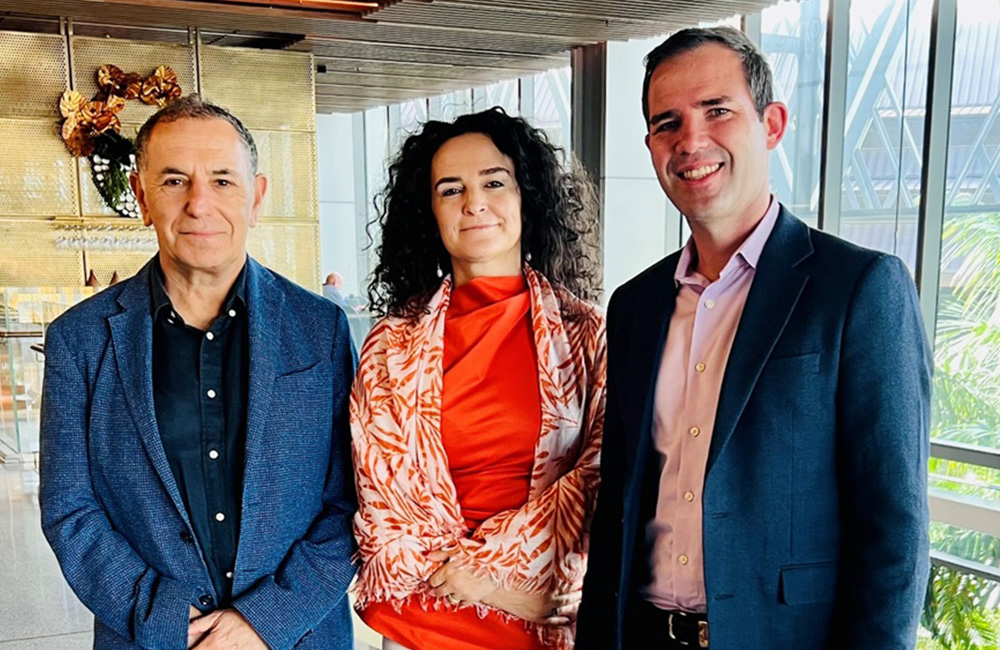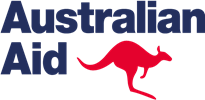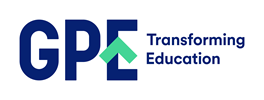Cash, Climate and Child Protection in Action, by Mat Tinkler, CEO
I have just returned from an inspiring trip to Papua New Guinea, one of our nearest neighbours — just 4km across the Torres Strait — and a place where Save the Children is doing bold and impactful work.
A country of rich complexity
PNG is one of the most culturally and geographically diverse nations on earth, home to more than 800 languages, mountainous highlands, active volcanoes and stunning coastlines. But alongside this beauty are some deep and persistent development challenges.
PNG has one of the highest rates of child stunting (a condition resulting from chronic malnutrition) in the world — over 48%; rates of violence against women and children are staggeringly high; and education outcomes continue to lag. That’s why our presence in PNG — across health, education and protection — is so vital.
Meeting our team
Our work in PNG spans eight provinces, so our amazing team often spend long stretches on the road away from their families to ensure our work reaches the places where it is most needed.

It was a privilege to spend time with our incredible PNG team, who are deeply committed to children’s rights.
One such province is East New Britain — a breathtakingly beautiful part of the country with a painful past, including occupation by Japanese forces during World War II and several devastating volcanic eruptions. It is here that I visited one of the most impactful programs I’ve seen anywhere.
Cash, dignity and better beginnings
The Child Nutrition and Social Protection program is the first in PNG to deliver direct cash payments to participants — in this case, pregnant and lactating mothers — as part of a holistic approach to supporting children through their first 1,000 days of life.
Led by the PNG Government and funded by the World Bank and the Australian Government through the Department of Foreign Affairs and Trade, the program helps mothers access bank accounts and SIM cards (offering safety and financial independence), learn about nutrition and health, register births, access vaccinations, and ultimately receive direct financial support.
It’s a program built on evidence: when you empower women with resources, they invest in what matters – food, healthcare and education. The pilot phase has already shown this in action, and there’s real excitement about its scale-up potential. In total, the program will reach around 180,000 families across four provinces.
Tackling violence against children
Child protection remains an urgent challenge in PNG. Children experience violence in all spheres of life — in their homes, schools, communities, and increasingly online. Corporal punishment is widely accepted, and violence is often considered a parent’s right.
That’s why we’re launching the Safe Schools, Safe Families project — an $8 million initiative funded by the Australian Government through the NGO Cooperation Program (ANCP). The project will work closely with men and boys, as well as community leaders, to reduce the amount of corporal punishment taking place.
We’re also partnering with Meta and DFAT to tackle online violence and abuse — a fast-growing threat to children’s safety and wellbeing in PNG and beyond.
Climate disruption is already here
In Port Moresby I met with the Green Climate Fund (GCF), to discuss ways we can adapt our latest climate resilience project, BRACE, to suit PNG.
BRACE is a US$50 million initiative — the first of its kind — that brings together two of the world’s largest donors, GCF and the Global Partnership for Education, to help schools adapt to the inescapable impacts of the climate crisis. The project is being piloted in Tonga, Cambodia and South Sudan — three very different contexts, each already grappling with the realities of climate disruption.

The Chair of our Board, Larry Kamener, the CEO of GCF, Mafalda Duarte, and I met in Port Moresby to discuss our groundbreaking work.
There is growing interest from government and GCF to implement a project similar to BRACE in schools in PNG, where students and teachers told us about rivers that have become too dangerous to cross, classrooms too hot to learn in, and schools closing early because water tanks have run dry.
These aren’t hypothetical risks — they’re today’s barriers keeping children from learning.
Flying out of Port Moresby, I felt immense pride — not just in the work I’d seen, but in the way we’re showing up in PNG. It’s proof that with the right partnerships, grounded in community and led with humility, we can help make real, lasting change for children across the country.
The Child Nutrition and Social Protection program is funded by the World Bank and supported by the Australian Government through the Department of Foreign Affairs and Trade.
The Safe Schools, Safe Families project is supported by the Australian Government through the NGO Cooperation Program (ANCP).

The BRACE project is funded by the Green Climate Fund and the Global Partnership for Education.

